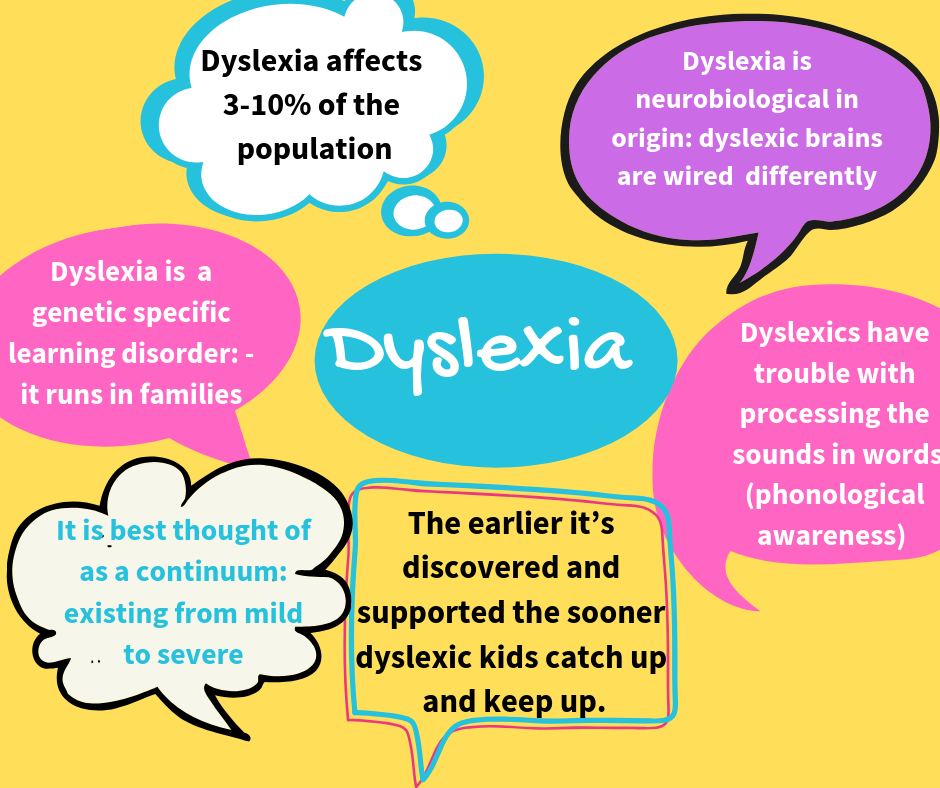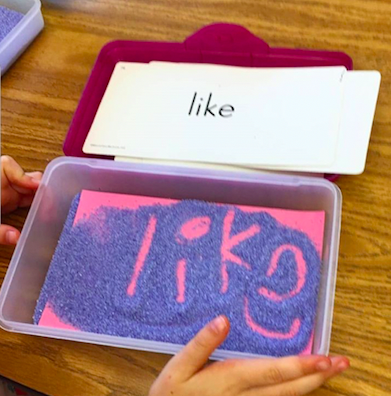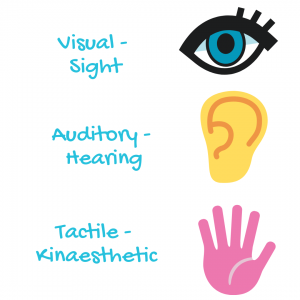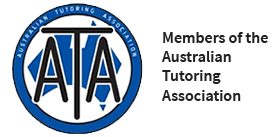What You’ll Discover – All about dyslexia
- What is dyslexia?
- What do we know about dyslexia?
- How do I know if my child is dyslexic?
- Signs of dyslexia at different ages
- My child has been diagnosed with dyslexia. Should I tell them?
- Why does it take so long for schools to pick up on dyslexia? What can the school do for my child?
- How dyslexia affects learning
- Why do children with dyslexia have other learning disorders as well?
- What programs or interventions work for children with dyslexia?
Dyslexia Support Geelong
Dyslexia is often not well defined or properly understood. Learning Works Dyslexia support Geelong clinic has developed this dyslexia guide to help parents understand dyslexia better. It does not help that different labels are used such as “reading disability and “specific learning difficulty.”
What is Dyslexia?
Dyslexia defined
Dyslexia is a specific learning difficulty in reading. It involves difficulty with words; it affects a person’s ability to read accurately and fluently. We see many children at Dyslexia support Geelong with dyslexia. Dyslexia can affect all aspects of learning from reading and writing, reading comprehension, spelling to maths, memory, organisation and concentration. Approximately one in ten people have dyslexia.
It is sometimes referred to as:
- Specific learning disorder
- A learning disability
- Reading disorder
What do we know about dyslexia?
Dyslexia is a lifelong condition, it is not something children ‘grow out of.’ It makes it difficult to read. Dyslexics need specialised support, as they have a different way of processing information which is caused by physical differences or ‘wiring’ of the brain. It is the most common learning issue. Approximately 3-10% of the population have dyslexia.
Dyslexia is mainly a problem with reading accurately and fluently and processing information at the word level. Dyslexic ranges in severity – from mild to severe. It is a genetic condition and runs in families. It occurs across a range of intellectual ability. Dyslexia is not a reflection of a child’s intelligence — in fact it’s defined as a gap between a student’s ability and achievement.
Dyslexia can create difficulty with other skills.
These include:
- Reading comprehension
- Spelling
- Writing
- Math
- Memory
- Concentration
Advice from Dyslexia support Geelong: How do I know if my child is dyslexic?

Dyslexia presents itself in many different ways. Common symptoms of dyslexia are problems with reading, writing, spelling, organisation, memory, word retrieval and speed of processing. A family history of similar difficulties during the school years is another risk factor. At Dyslexia support Geelong we know that many of the difficulties show up during a child’s first year or two at school. It is useful to identify dyslexia early as this means your child has more time to develop the coping strategies to meet his/her individual challenges.
Signs of Dyslexia at different ages
Dyslexia is different for everyone. It is therefore not straightforward to diagnose. An individual will show dyslexia in an individual way. It can change over the years according to your child’s environment and the demands placed on them.
Trouble decoding (sounding out/reading/pronouncing written words) is often present in children with dyslexia. This is the ability to match letters to sounds and then use that skill to read words accurately and fluently.
Some children are not diagnosed until much later in their schooling, when they are experiencing difficulty with more complex skills. These may include grammar, reading comprehension, fluency and various writing styles.
Dyslexia is often a pattern of difficulties and a persistence of these difficulties over a period of time.
Preschool

- Late speech and language development – considered by the doctor to be a late talker.
- Has trouble saying words accurately – perhaps uses baby talk
- Often mispronounces words, like saying “beddy tear” instead of “teddy bear.”
- Often has trouble naming familiar objects, saying general words like thing and stuff instead of the names of objects.
- Often tells stories that are hard to follow; has trouble talking about an event in a logical order
- Struggles with learning new words
- Has trouble recognising letters and matching them to sounds
- Pronunciation problems
- Grammatical errors in speech
- Difficulty learning nursery rhymes and unable to give rhymes
- Difficulties learning a sequence of activities such as tying shoelaces or doing up buttons
- Talents in creative areas such as playing with Lego
Primary school – prep to grade 3

- Intelligent in many ways but slow to learn to spell/read and write
- Has trouble taking away the middle sound from a word or blending several sounds to make a word
- Often can’t recognise common sight words
- Quickly forgets how to spell taught spelling words
- Find worded problems in maths tricky
- Difficulty learning to tell the time and learning the language of time such as “ten past three”
- Difficulties in learning letter formation and confusing upper and lowercase letters
- Problems remembering more than one instruction at a time
- Difficulty learning sequences such as the alphabet, days of the week, months of the year
- Difficulty understanding alliteration or giving the words which start the same sound
- Has difficulty learning letter names and remembering the sounds they make.
- Confuses letters that look similar (b, d, p, q) and letters that have similar sounds (d/t; b/p; f/v).
- Struggles to read familiar words (like cat or the), especially when there are no pictures or other context clues; often skips over or confuses small words like to and as when reading aloud.
- Often substitutes words when reading aloud, like saying the word house when the story uses the word home.
Upper primary – grade 4 to grade 6
- Doesn’t seem to know how to approach unfamiliar words, such as focusing on the sound of the first letter or looking at the vowels for clues to pronunciation
- Has trouble with the vowels in words, such as knowing how vowels combine in words and that they have different sounds depending on how they’re combined.
- Has trouble hearing the individual sounds in words and/or blending sounds to make a word
- Has trouble remembering how words are spelled and applying spelling rules in writing.
- Leaves off the end of a word when reading and writing (for example, leaving off the s in cats or the ed in jumped).
- Has trouble quickly coming up with a list of words (for example, if asked to say the names of 10 colours or 10 fruits) or retrieving the name of something.
- Avoids reading whenever possible or gets frustrated or agitated when reading
- Often can’t recognise sight words at a glance, such as where and there, and tries to sound them out.
- Often has trouble explaining what happened in a story or answering questions about key details.
- Has an easier time answering questions about a text if you read it aloud
- Frequently makes the same kinds of mistakes, such as reversing letters (writing bots instead of dots) or mixing up the order of letters (writing stop instead of spot).
- Persistent difficulties with spelling – such as quickly forgetting how to spell many learnt words
- Takes a very long time to complete reading and comprehension tasks
- Reads at a much slower level than talking voice
Signs of dyslexia in high school
- Often reads slowly, leaving out small words and omitting out parts of longer words when reading aloud.
- Makes lots of spelling errors, sometimes misspelling words in ways that a computer spell-checker doesn’t know how to correct
- Has trouble expressing ideas in an organised way or supporting an argument when doing writing assignments
- Often seems to be searching for the words he wants to say and ends up using words like stuff or thing rather than a more specific phrase; or substitutes related words, like using the word gate instead of fence
- Often doesn’t get the joke and has trouble understanding idioms and puns
- Has an easier time answering questions about a page of text if it’s read aloud
- Avoids reading whenever possible or gets frustrated or agitated when reading
- Takes a very long time to complete reading and comprehension tasks
- Seems to read at a lower academic level than speaking and may have a smaller vocabulary than other kids the same age due to a lack of reading.
My child has been diagnosed with dyslexia. Should I tell them?
There is no right or wrong answer to this question. We support many For many children and adults, a formal name or label can provide a sense of relief for their difficulties. It can be comforting for a child to learn that they are not ‘dumb’ and there is a reason that they find reading and writing so challenging.
Why does it take schools so long to pick up on/diagnose dyslexia?
Teachers at your child’s school will be monitoring his/her progress carefully right from the first day in school. It is quite difficult to decide how early an assessment should take place because some of the characteristics of dyslexia can be noted in the normal development of young children. Schools may use a dyslexia screening test to give an indication of possible dyslexic difficulties and will then put in place relevant support for your child.
Schools sometimes use ‘response to intervention’ to identify whether your child has dyslexia
A good indication of dyslexia can be gained by examining how the child responds to well informed intervention.
Response to intervention is the early screening standard educators use to determine whether a child may have dyslexia. Your child will not have responded to a known effective instruction which has worked for other students. Your child’s performance could be significantly inferior to the performance of his or her peers. This provides an early warning system for teachers and special educators.
How dyslexia affects learning
Main difficulties of dyslexia:
- Processing the sounds in words (phonological deficit)
- Auditory short-term memory
- Retrieving words from vocabulary (naming speed)
- Recognising and remembering the ‘look’ of words (orthographic processing)
- Attaining automaticity in underlying and component skills needed for reading and written language
- Multi-tasking
For children dealing with dyslexia, it can be an educational struggle. Dyslexia support Geelong sees many kids children with dyslexia who have trouble processing the sounds in words. Their phonological awareness (a key aspect of reading) is affected. Since dyslexic children have difficult hearing and working with the sounds in words, they cannot relate these sounds to letters of the alphabet and cannot attack unknown words with decoding skills. Dyslexic children have huge problems learning phonics (letter/sound recognition).
Reading
- Difficulty working with the sounds in words eg, identifying beginning and end sounds in a word, producing a word that rhymes
- Difficulties recognising and manipulating sounds, letters and words.
- Learning to read is difficult. Once reading is grasped, dyslexics remain slow readers.
- Difficulty decoding words – recognising and sounding out words
- Problems learning phonic (letter/sound association skills)
Memory systems
- Trouble blending sounds together
- Poor auditory short-term memory
- Slower naming speed
- difficulty remembering names and words
- Trouble remembering sight words\
- Problems remembering instructions
- Difficulty learning lists of facts
- Trouble with basic sight words
Orthographic processing difficulties
- Reading and spelling problems
- Recognising words automatically are skills needed for reading and written language. Your child may be able to sound out (decode) words but the process is very slow and takes a lot of effort.
Difficulty multi-tasking
- Problems with listening/note taking
- Problems with organisation
- Problems with time management
- Can only do one thing at a time – cannot focus on spelling as well as ideas when writing
- Cannot decode words and take in the meaning of the book as well
Why do children with dyslexia have other learning disorders as well?
Many kids have more than one learning difficulty. There are a number of issues that commonly co-occur with dyslexia.
ADHD
Dyslexia and Attention Deficit/Hyperactivity Disorder frequently occur together, although the link between the two conditions is not, as yet, fully understood. Approximately 30% of dyslexic students have Attention Deficit/Hyperactivity Disorder. But bear in mind, children with dyslexia may fidget or act out in class because of frustration over reading, not ADHD.
Learning difficulties can also lead to anxiety, depression and behaviour problems.
Dyspraxia
There is a lot of overlap between the signs and symptoms of dyspraxia and dyslexia. Research suggests that 52% of children (Dyspraxia Foundation, 2013) with dyslexia display features of dyspraxia. Dyspraxia, a form of Developmental Coordination Disorder (DCD), is a common disorder affecting fine and/or gross motor coordination in children and adults. There may be additional problems planning, organising and carrying out movements in the right order in everyday situations. Dyspraxia can also affect articulation and speech, perception and thought. Although dyspraxia may occur in isolation it frequently coexists with other conditions such as dyslexia, the term used to describe a difficulty in learning to read, write and spell, Attention Deficit Hyperactive Disorder (ADHD), language disorders and social, emotional and behavioural impairments.
Dysgraphia
Dysgraphia is a specific learning difficulty that affects writing skills. It is characterised by difficulties with spelling, handwriting and transferring thoughts to paper. Many children with dysgraphia also have dyslexia.
Dyscalculia
Dyscalculia refers to a wide range of life long learning disabilities involving maths. People with dyscalculia may have difficulty understanding simple number concepts, lack an grasp of numbers and have problems learning number facts and procedures.
There is considerable overlap between dyslexia and dyscalculia and somewhere between 20% and 60% of students who have one of the two conditions also have the other.
Executive functioning issues
Executive functioning issues affect a variety of skills. Working memory, organisation skills, making decisions, flexible thinking and planning.
Auditory processing disorder
Auditory processing disorder affects a child’s ability to sort manage information he or she hears. There is nothing wrong with the child’s hearing, but they have difficulty registering what people are saying. Processing and using auditory information is troubling for children with APD. They have trouble learning to read and expressing themselves clearly because they confuse the sounds of different words.
Slow processing speed
Children who have processing speed difficulties are slower to take in, process and respond to information. This difficulty can make it harder to master basic reading skills and get the meaning of what they’ve read. Slow processing speed affects how fast kids can take in and use information. This can make reading and many school work related tasks, difficult.
Visual processing issues
The brain, not the eyes, processes the visual world, including things like symbols, pictures and distances. Weaknesses in these brain functions are called visual processing disorder or visual processing issues.These issues make it hard to process what they eyes see. Blurry vision, letters hopping around the page and reverse letter writing and staying between the lines are hallmarks of vision processing issues.
How to help kids with dyslexia – Dyslexia support Geelong
A dyslexia diagnosis does not mean your child will never learn to read. It will likely be a more effortful process, but with the right instruction, they can overcome their learning challenges. We support children with dyslexia in Geelong by providing:
- Multi-sensory instruction in decoding skills
- Regular repetition and review of skills
- Small group or individual instruction
- Drilling sight words
- Teaching comprehension strategies, to help kids derive meaning from what they’re reading
Dyslexia support Geelong FAQ: What programs or interventions work for children with dyslexia?
Multisensory teaching – dyslexia support in Geelong

Multisensory teaching is one important aspect of intervention for dyslexic students that is used by clinically trained teachers, like those at Learning Works dyslexia support Geelong clinic. A skilled MSL educator provides direct instruction to ensure links are consistently made between the visual (language we see), auditory (language we hear/perceive), and kinesthetic-tactile (language symbols we feel) pathways in learning to read and spell.
Students with dyslexia need to be taught, slowly and thoroughly, the basic elements of their language—the sounds and the letters which represent them—and how to put these together and take them apart. They have to have lots of practice in having their writing hands, eyes, ears, and voices working together to learn.
Read more about Dyslexia support Geelong multi-sensory teaching here

Dyslexia support Geelong suggested useful programs:
- Orton-Gillingham method
- Sounds-Write
- Dandelion Readers
- Tic Tac Toe
How do I help my child with self-esteem?
Children with specific learning disorders and learning disabilities have spent many years at school feeling “stupid.” Their self-esteem is at an all time low. Our teachers at dyslexia support Geelong clinic see many children whose self-esteem has been crushed.
Rediscovering their strengths and helping dyslexic students to believe in themselves is our goal. Make sure your child understands what having dyslexia means for them, as knowing there is a reason for their difference can be a turning point. Knowing that difficulties are not an indicator of a general lack of ability can be reassuring and, at the same time, your child’s needs to be helped to understand that they may have to work twice as hard as peers to achieve similar results. Support, understanding and realistic target setting are useful ways of maintaining a positive self-image.
Tutoring and Educational Therapy – Dyslexia support Geelong
Learning Works Dyslexia support Geelong specialist reading teachers understand that each child is different, so they make the most of those differences. An individual multi sensory programme is created for each child to support that child’s strengths and learning preferences and to support areas of need.
Together with you, Dyslexia support Geelong inspires children to believe in themselves, achieve their goals and succeed on their own terms.
At Dyslexia support Geelong:
- We listen to your child
- We get to know your family
- We identify your strengths and empower you to act on them
- We support children of all ages and their families
- We understand that the child we are tutoring has had a history of difficulty and academic failure at school. Because of this, during our lessons we are patient, honest and give legitimate praise.

